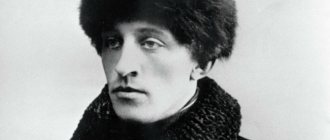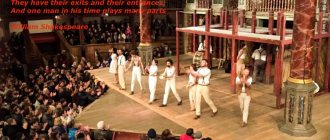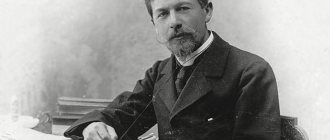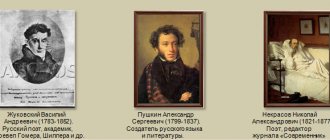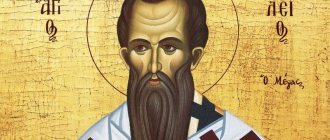Did you know that Cervantes originally conceived Don Quixote simply as a humorous parody of the contemporary “tabloid” chivalric novels? But the result was one of the greatest works of world literature, which remains almost the most widely read to this day? How did this happen? And why did the mad knight Don Quixote and his squire Sancho Panza turn out to be so dear to millions of readers?
Viktor Simakov, candidate of philological sciences, literature teacher, spoke about this especially for Foma
Don Quixote: the story of an idealist or a madman?
When talking about Don Quixote, one should distinguish between the plan consciously formulated by the author, its final embodiment and the perception of the novel in subsequent centuries. Cervantes's original intention was to ridicule chivalric romances by creating a parody of a mad knight.
However, in the process of creating the novel, the idea underwent changes. Already in the first volume, the author, consciously or not, rewarded the comic hero - Don Quixote - with touching idealism and a sharp mind. The character turned out to be somewhat ambiguous. He, for example, pronounced a famous monologue about the bygone golden age, which began with these words: “Blessed are the times and blessed is the age that the ancients called golden - and not because gold, which in our Iron Age represents such a huge value, in that happy times were given for nothing, but because the people who lived then did not know two words: yours and mine. In those blessed times everything was common.”
Monument to Don Quixote. Cuba
Having finished the first volume, Cervantes seemed to have finished the entire novel. The creation of the second volume was helped by an accident - the publication of a fake continuation of Don Quixote by a certain Avellaneda.
This Avellaneda was not such a mediocre author as Cervantes declared him to be, but he distorted the characters of the heroes and, logically, sent Don Quixote to a madhouse. Cervantes, who had previously felt the ambiguity of his hero, immediately set about the second volume, where he not only emphasized the idealism, sacrifice and wisdom of Don Quixote, but also gave wisdom to the second comic hero, Sancho Panza, who previously seemed very narrow-minded. That is, Cervantes ended the novel not at all the way he began it; as a writer he evolved along with his heroes - the second volume came out deeper, more sublime, more perfect in form than the first.
Four centuries have passed since the creation of Don Quixote. All this time, the perception of Don Quixote has been changing. Since the times of romanticism, for most readers, Don Quixote has been a tragic story about a great idealist who is not understood or accepted by the people around him. Dmitry Merezhkovsky wrote that Don Quixote turns everything he sees in front of him into a dream. He challenges the usual, the ordinary, trying to live, guided by ideals in everything, moreover, he wants to turn back time, to the golden age.
Don Quixote. John Edward Gregory (1850-1909)
To the people around him, the hero seems strange, crazy, somehow “not like that”; For him, their words and actions evoke pity, sadness or sincere indignation, which is paradoxically combined with humility. The novel really provides the basis for such an interpretation, exposes and complicates this conflict. Don Quixote, despite any ridicule and mockery, continues to believe in people. He is ready to suffer for any person, ready to endure hardships - with the confidence that a person can become better, that he will straighten up, jump above his head.
In general, Cervantes's entire novel is built on paradoxes. Yes, Don Quixote is one of the first pathological images (that is, the image of a madman - editor's note) in the history of fiction. And after Cervantes, there will be more and more of them every century, until, finally, in the 20th century, almost the majority of the main characters in novels will be crazy. However, this is not what is important, but the fact that as we read Don Quixote, we get the feeling that the author is slowly, not at all immediately, showing the hero’s wisdom through his madness. So in the second volume the reader clearly faces the question: who is really mad here? Is it really Don Quixote? Aren't those who mock and laugh at the noble hidalgo crazy? And it is not Don Quixote who is blinded and maddened in his childhood dreams, but the people around him, unable to see the world as this knight sees it?
To main
All authors
Home → Miguel de Cervantes → Don Quixote
CHAPTER XIX,
about the wise speeches of Don Quixote, about the dead body and about other interesting events.
- Do you know what, your grace? - Sancho began. “It seems to me that the Lord is sending you all these misfortunes as punishment for the fact that you did not keep your vow: not to eat from the tablecloth, not to talk to women and generally not to do many other things that you promised until you get this helmet ... what’s his name?” .. Malandroma, or what... In a word, that Moor you told me about.
“Yes, you’re probably right, friend Sancho,” answered Don Quixote. “I swear to God, I completely forgot about it!.. Part of the punishment must have fallen on you for not reminding me of my oath.” I will now use every effort to make amends for my guilt. This, however, is not particularly difficult, since the knightly charter represents a complete opportunity to atone for any sin, no matter how great it may be. I will teach you how to clear your conscience.
“Why should I purify myself when I didn’t take any oaths?”
“You didn’t give it, but you heard me swear, and therefore it was your sacred duty to stop me from breaking my vows.” Since you did not do this, then the guilt of complicity with me in perjury, that is, in a great sin, falls on you.
- Well, there’s nothing to do, I’ll try to atone for my sin, as you tell me. I just ask you not to let me down again. You will not fulfill your vows, and I will have to answer for this, my humble servant! How can I know what you swear to yourself and then do not fulfill your oaths? I do not sit in your soul, and therefore I cannot examine your conscience. It is a great pleasure to be responsible for another when...
“For God’s sake, stop grumbling, Sancho!” My head is already spinning... Look, it’s already getting dark, and I can’t see any housing anywhere. This way we’ll have to spend the night in an open field and, what’s more, with an empty stomach... Was there any food left in the bag?
- No, your grace; there were only various dressings and some small items. I wanted to stock up on food and wine in that... in that enchanted castle in which we spent the night, but I forgot because of those damned ghosts that treated us so nicely in the attic...
- In the attic? Come to your senses, Sancho: you call the most luxurious bedroom intended for noble knights an attic. It's like nothing else!
“Well, in that enchanted bedroom, which seemed to me like an old, crumbling attic, it doesn’t matter.”
Talking about fantastic castles, wizards, enchanted princesses and similar wonders, our travelers, despite the descending darkness, continued to travel forward. They were dying of hunger and asked God to bring them again at least to some shepherds who could feed them and give them shelter for the night.
Suddenly they saw a procession moving towards them with torches shining brightly in the distance. This procession was so large that there seemed to be no end to it. Not being able to explain to himself what this meant, Sancho was completely at a loss with fright, and Don Quixote also became completely bewildered, looking at this strange procession.
Holding their animals, the knight and his squire silently looked at the line of fire that was quietly approaching them. Sancho was shaking all over, and his master felt a chill run through his skin. Nevertheless, to the honor of the knight it must be said that he was the first to control himself and said:
“There is no doubt that we are face to face with a new adventure, in which I am called upon to show all my strength and all my courage.”
- Oh, Lord! - exclaimed Sancho. - Where can I get ribs for this new adventure? Obviously, these are again some kind of sorcerers or ghosts that are impossible for ordinary people like me, and even the knights themselves, to cope with...
“Be calm, my friend,” Don Quixote interrupted. “No matter what powerful wizards or spirits they are, I will not allow them to touch you even with a finger.” If I was not in time to help you in the morning when they were throwing you into the air, it was only because I was chained to the saddle and could not jump over the fence; and now we are in an open field, and I won’t leave you a single step.
- What if you are again bewitched so that you cannot help me? There is nothing good to expect here... there are so many of them crawling towards us!
- In any case, I ask you not to lose heart, Sancho... Be more courageous. I am not afraid of anything at all and hope to emerge completely victorious from this new adventure.
“Well, okay, let’s see what happens,” said the squire, trying to cheer up. “Perhaps the Lord will intercede for us at least this time, seeing our sincere repentance for past sins.”
- Of course, Sancho. Trust in His mercy, and nothing bad will happen to you... However, let’s move a little to the side, otherwise our animals will not become afraid.
The knight and squire rode a few steps away from the road and stopped, not taking their eyes off the procession. Soon they could make out a crowd of men covered with white veils.
At the sight of this strange spectacle, Sancho, who had been so brave, again became so afraid that his teeth began to chatter as if in a feverish chill. His horror intensified when he saw in the middle of the crowd about twenty horsemen, also in white and with torches in their hands; The faces of these horsemen looked like stone. Next came the funeral bier, accompanied by six other horsemen in long black robes that reached down to the hoofs of their mules.
The procession moved very slowly. From time to time, plaintive lamentations could be heard among the crowd.
Considering the dead of midnight and the completely deserted place, it should not be surprising that Sancho was convinced that this was a procession of ghosts. As for Don Quixote, who was constantly raving about supernatural adventures, he was completely convinced of this, and the more the former became a coward, the more the courage of the latter increased.
“How happy I am,” he said, “that Heaven is finally giving me the much-desired opportunity to glorify my name!” They are probably carrying a dead or mortally wounded knight, for whom I am destined to avenge his enemies... Look, Sancho, how bravely I will fulfill the task assigned to me by Providence, and marvel at me!
Having straightened himself in the saddle, he firmly grasped the lance with his right hand and, with a determined look, rode out again to the middle of the road, calming his Rocinante, who was beginning to twist his ears, with gentle words.
When the first row of the procession approached him point blank, Don Quixote shouted in a thunderous voice:
- Hey, whoever you are, stop! Answer me: who are you, where are you going, and what is on your stretcher? Apparently, you are either victims of a great crime, or villains themselves who have committed some terrible crime... Answer me! I am called by Heaven to avenge you or punish you...
“We don’t have time to give you a report,” answered one of the horsemen, “it’s still a long way to the hotel, and we’re in a hurry.” Take the trouble to give us a way.
Insulted by this answer, Don Quixote grabbed the nearest mule by the bridle and shouted again:
“I repeat to you: stop and be more polite with me... Answer my question if you don’t want me to challenge you all to a battle with me!”
The frightened mule reared up and threw off its rider. Curses were heard at Don Quixote. This prompted the enraged knight to rush at the other rider. With a blow from his pike he knocked him out of the saddle; the same fate befell the third, fourth, and so on. The knight pranced in the middle of the crowd, victoriously throwing off horsemen to the right and left and knocking over the foot soldiers. One might have thought that Rocinante had suddenly grown wings - so quickly and easily he flew with the hero sitting on him, triumphant in his victory over so many opponents.
Thinking, in turn, that they were dealing with an evil spirit, or at least with some kind of robber-thug, the crowd fled in horror in all directions, however, without leaving their torches. From the outside, one might think that these were mummers during a carnival, who decided to take a walk at night in a deserted place and were frightened by something. Long robes caused the runners to get tangled in the folds and stumble.
It was not difficult for Don Quixote to deal with a whole crowd of such cowards. Some of those who fled imagined that they really saw in his face the devil himself, bursting straight out of hell to take away from them the dead man who was lying on a stretcher, since it was a funeral procession that our hero had attacked.
Sancho looked with bulging eyes at this whole scene, marveling at the courage and dexterity of his master and muttering to himself: “But my knight really must be such a hero as he says about himself!”
All those knocked out of the saddle by Don Quixote soon managed to get up, get back on their mules and hide. The only one left on the ground was the one the mule himself threw off when the knight picked him up by the bridle. Noticing a man lying on the ground with a torch in his hand, which was still burning, Don Quixote shouted to him to surrender if he did not want to be killed on the spot.
“I’ve already given up,” he answered, “and it seems that in the fall I broke my leg, and therefore I cannot get up.” If you, senor, are a nobleman and a Christian, then you will not kill a defenseless licentiate of the first degree. You would be committing a completely useless crime.
- If you are a spiritual person, then what the hell brought you here? - Don Quixote asked.
- Not the devil, but my evil fate...
“Your fate will indeed be unenviable if you do not immediately answer all my questions,” continued Don Quixote.
“I’ll answer you anything you want,” the licentiate hastily declared. “First of all, I must tell you that my name is Alonzo Lopez.” I come from Alcovenda and am traveling from the city of Baeza in company with eleven other clergy to Segovia. We are accompanying the body of a nobleman who died in Baeza, where he was initially buried, but his relatives demanded that his body be dug up and transferred to Segovia, to the family crypt. Those who walked with us, all his relatives and friends.
-Who killed him? - asked the knight.
“God sent him a malignant fever,” replied Alonzo Lopez.
- This is a different matter. Consequently, I have no one to take revenge for his death and all that remains is to humbly bow my head before the Higher Will... Know that I am the errant knight Don Quixote of La Mancha, who has devoted himself entirely to serving good, to restoring truth and trampling on evil, which I vigilantly seek while wandering around to the world
“Judging by the fact that you are the cause of my current situation and the lameness that must be awaiting me, I involuntarily come to the conclusion that you sometimes trample on good along with evil,” the licentiate noted with a sigh. “Obviously, you have gone a little overboard with your zeal to serve only the truth... And as for me, I can assure you that the greatest evil and the most terrible injustice for me lies precisely in my real meeting with you.”
- Alas, not everything in the world is done as it should be! - said Don Quixote. “You are free to roam the deserts at night, pretending to be ghosts with torches in your hands!” At first I mistook you for devils who had taken possession of someone’s sinful soul, and, fulfilling my duty, I wanted to snatch it from you. Then I suspected you were criminals, and again duty commanded me to stop you and demand an account from you, and if my suspicions were justified, to punish you.
“Well, it means that such a bad confluence of circumstances has come to pass that no one could have foreseen... I ask you one thing, Mr. Knight Errant, who, by the will of fate, deprived me of the opportunity to fulfill my duty: help me get out from under my mule; my leg is caught between the stirrup and the saddle, and I can’t free it with my own strength.
- Why have you been silent about this until now! - Don Quixote cried. - Sancho! Sancho, come here quickly!.. Sancho, where are you?
Although the squire heard the call of his master, he did not rush to answer it, being busy with more interesting work: he picked up packages and bundles of provisions that the licensees were carrying with them and had lost during their flight. Having taken off his doublet and made a bag out of it, he put the find into it and only then ran up to Don Quixote when he firmly attached this makeshift bag to the back of his donkey.
When the poor licentiate, whose leg turned out to be severely dislocated and not broken, as he thought, was pulled out from under the mule and placed on the saddle by the united efforts of the knight and his squire, Don Quixote asked for an apology for the involuntary insult to the clergy and wished them all a happy future ways. Sancho added:
“My father, if your companions ask you who the brave knight is who put them to flight, then tell them that this is the famous Don Quixote of La Mancha, the knight of the “Sad Image.”
As soon as the licentiate had ridden so far that the light of his torch began to seem like a small fiery point, like a firefly, Don Quixote asked his squire:
- Sancho, why did you call me the knight of the “Sad Image”?
“Because I have never seen your honor so pitiful, tormented and exhausted as now, in the light of the torches.” This, of course, is because you have been beaten so much these days.
“No, Sancho, that’s not why,” Don Quixote objected. “All the former famous knights had nicknames: the knight of the “Burning Sword,” the knight of the “Unicorn,” the knight of the “Maiden,” the knight of the “Phoenix,” the knight of the “Vulture,” the knight of “Death,” and so on. Of course, I should not be left without a nickname, and therefore the spirit of my future historian put into your mouth the nickname with which you have now called me. From now on, I will call myself a knight of the “Sad Image” and, at the first opportunity, I will order that a corresponding figure be drawn on my shield by which I could be recognized immediately, without any questioning.
“You don’t want to waste your time on this, your grace, when you only need to show your own figure to be immediately recognized as a knight of the “Sad Image”!” - exclaimed the squire. “I’m not joking: from the beatings, from hunger and from the loss of teeth, you look surprisingly sad.”
Don Quixote involuntarily smiled, but nevertheless expressed his firm intention to preserve the nickname so unexpectedly given to him by his squire and to decorate his shield with a sad figure.
- You know what, my friend? - he said after being silent for a while. “After all, I am subject to excommunication from the Church for raising my hand against the clergy... However, in fact, I raised a pike, not a hand, and did not have the slightest intention to commit such a crime.” I am a faithful son of the Catholic Church and respect everything that has anything to do with it. I thought that these were evil spirits or robbers against whom I was obliged to take up arms. Suppose there was such a case with the knight Cid Ruy-Diaz: one day he overturned the seat of an ambassador in front of His Holiness the Pope himself, and for this insolence the Pope excommunicated him from the Church, although the knight acted as his honor and duty commanded him... But what? We didn’t look to see if the corpse was actually carried on a stretcher? Maybe there was something else there. Should we not catch up with the porters, Sancho, and force them to show what they are carrying?
“No, your honor,” Sancho objected, “I do not advise you to do this.” The people whom you so bravely dispersed may be tempted to take revenge on you if they see you again, and then not only will your ribs be counted, but mine will also be counted. Let's get out of here on good terms and in good health. We now have plenty of provisions, since I picked up everything that the fugitives lost, and not far from here there should be mountains in which we can perfectly hide and have a good meal after all our exploits. Let us remember the proverb “Let the dead go to the grave, and the living to pasture” and move on.
With these words Sancho took the bridle of his heavily laden donkey and moved forward; Don Quixote silently followed him, realizing that he was right.
Half an hour later they found themselves in the mountains, where they settled down to rest and satisfy their hunger with delicious dishes that so conveniently came to hand. Unfortunately, they did not have a single sip with which they could quench their thirst.
Sancho began to think about where they could get some water.
Next page →
← 18 pp. Don Quixote
20 pages → Pages:
19
Total 122 pages
© "Online-Chit.RF" Feedback
Who “blessed” Don Quixote for his feat?
It is important to understand, as Merezhkovsky writes, that Don Quixote is a man from that ancient era, when the values of good and evil were formed not based on personal experience, but with an eye to what authoritative people of the past, for example, Augustine, Boethius or Aristotle, said . And any important life choice was made only with support and an eye on the great, authoritative people of the past.
Same for Don Quixote. For him, the authors of chivalric novels turned out to be authoritative. The ideals he read and absorbed from these books were accepted by him without hesitation. They, if you like, determined the “dogmatic content” of his faith. And the hero of the novel devoted himself entirely to bringing these principles of the past into the present, “to make it come true.”
And even when Don Quixote says that he wants to achieve the glory of a sad knightly feat, then this glory is important to him precisely as an opportunity to become a conductor of these eternal ideals. Personal glory is of no use to him. Therefore, one might say, the authors of chivalric novels themselves “authorized” him for this feat.
Did Cervantes mock his hero?
Cervantes is a man of the turn of the 16th-17th centuries, and the laughter of that time is quite rude. Let's remember Rabelais or the comic scenes in Shakespeare's tragedies. Don Quixote was intended to be a comic book, and indeed it seemed comic to Cervantes' contemporaries. Already during the writer’s lifetime, his heroes became, for example, characters in Spanish carnivals. The hero is beaten, and the reader laughs.
Alleged portrait of Cervantes
It is precisely this inevitable rudeness of the author and his readers that Nabokov does not accept, who in his “Lecture on Don Quixote” was indignant at the fact that Cervantes mocked his hero so mercilessly. The emphasis on the tragic sound and philosophical issues of the novel is entirely the merit of the authors of the 19th century, romantics and realists. Their interpretation of Cervantes's novel has now obscured the writer's original intent. Her comic side appears in the background for us. And here is the big question: what is more significant for the history of culture - the thought of the writer himself or what we see behind it? Dmitry Merezhkovsky, anticipating Nabokov, wrote that the writer himself did not really understand what kind of masterpiece he had created.
Why did a clownish parody become a great novel?
The secret of such popularity and significance of Don Quixote is due to the fact that the book constantly provokes more and more new questions. Trying to understand this text, we will never reach the end. The novel doesn't give us any definitive answers. On the contrary, he constantly eludes any complete interpretations, flirts with the reader, provokes him to dive deeper and deeper into the semantic composition. Moreover, the reading of this text will be “their own” for everyone, very personal and subjective.
This is a novel that miraculously evolves with the author before our eyes. Cervantes deepens his concept not only from the first volume to the second, but also from chapter to chapter. Jorge Luis Borges, it seems to me, rightly wrote that reading the first volume when there is a second is, in general, no longer necessary. That is, “Don Quixote” is a unique case when the “sequel” turned out to be much better than the “original”. And the reader, rushing further into the depths of the text, feels an amazing immersion and increasing sympathy for the hero.
Monument to Cervantes and his heroes in Madrid
The work was and still is opening up new facets and dimensions that were not noticeable to previous generations. The book took on a life of its own. Don Quixote came into the spotlight in the 17th century, then influenced many authors during the Enlightenment (including Henry Fielding, one of the creators of the modern type of novel), then aroused successive delight among romantics, realists, modernists, and postmodernists.
It is interesting that the image of Don Quixote turned out to be very close to the Russian worldview. Our writers often turned to him. For example, Prince Myshkin, the hero of Dostoevsky’s novel “The Idiot,” is both “Prince Christ” and at the same time Don Quixote; Cervantes' book is specifically mentioned in the novel. Turgenev wrote a brilliant article in which he compared Don Quixote and Hamlet. The writer formulated the difference between two seemingly similar heroes who put on a mask of madness. For Turgenev, Don Quixote is a kind of extrovert who gives himself entirely to other people, who is completely open to the world, while Hamlet, on the contrary, is an introvert who is closed in on himself, fundamentally fenced off from the world.
What do Sancho Panza and King Solomon have in common?
Sancho Panza is a paradoxical hero. He is, of course, comical, but it is in his mouth that Cervantes sometimes puts amazing words that suddenly reveal the wisdom and wit of this squire. Moreover, this is especially noticeable towards the end of the novel.
At the beginning of the novel, Sancho Panza is the embodiment of the traditional image of a rogue in Spanish literature of that time. But Sancho Panza's rogue is a lousy one. All his trickery boils down to successful finds of someone's things, some kind of petty theft, and even then he is caught in the act. And then it turns out that this hero is talented in something completely different. Towards the end of the second volume, Sancho Panza becomes the governor of a fake island. And here he acts as a prudent and intelligent judge, so one cannot help but want to compare him with the wise Old Testament King Solomon.
So, at first, the stupid and ignorant Sancho Panza turns out to be completely different by the end of the novel. When Don Quixote ultimately refuses further knightly deeds, Sancho begs him not to despair, not to deviate from the chosen path and to move on - to new exploits and adventures. It turns out that he has no less adventurism than Don Quixote.
According to Heinrich Heine, Don Quixote and Sancho Panza are inseparable from each other and form a single whole. When we imagine Don Quixote, we immediately imagine Sancho nearby. One hero in two faces. And if you count Rocinante and Sancho the donkey, that’s four.
Characteristic
Sancho is an ordinary farmer
. Peasant. Commoner. I'm used to working as a laborer from morning to night. His life is unremarkable. There are no bright events in it. It is not surprising that the man dreamed of breaking out of this vicious circle in order to make his life better, but he lacks either the funds or connections to fulfill his desires. Therefore, without hesitation, he agreed to Don Quixote’s adventurous proposal. This was a once-in-a-lifetime chance and he had no intention of turning it down.
Money, wealth and loot
. This is exactly what Sancho dreamed of, but even more he loved to eat heartily and sleep longer. “When I sleep, I know neither fear, nor hope, nor labor, nor bliss. Thanks to the one who invented sleep." Despite his characteristic simplicity and naivety, the man clearly knew what he wanted.
Reasonable, practical, cunning
. “We’d better go down to the ground and walk on it with our feet.” He has a sharp mind. He is inherently observant. He often tries to reason with his master and dissuade him from committing unreasonable acts, but he himself unwittingly falls under his influence. The desire to become a governor overshadowed my mind.
Kind, sympathetic, humane, wise, selfless
. These positive character traits were especially evident during his reign of the island. Sancho turned out to be a good ruler. He tried to help everyone who turned to him for help. He solved problems fairly, without going beyond the law. However, he soon realized that it was not his. The high position was not to my liking. If at the very beginning of the work he dreamed of becoming a governor solely for selfish reasons, then, having tried out a new role for himself, he concluded that everyone should mind their own business. The one for whom he was born. He again wanted to return home to his usual work, plowing the land and planting grain.
The journey opened the squire's eyes to many things, freeing him from mirages and illusions. The healing did not happen immediately. Sancho reached this point gradually, through his own mistakes and serious trials that befell him along the way. He evolved before our eyes, turning from a cunning and rogue scoundrel into an honest, fair and wise man.
Don Quixote's influence was not in vain. Sancho's soul becomes higher. He understands that doing good is always better than doing evil.
What kind of chivalric romances did Cervantes ridicule?
Initially, the genre of chivalric novels originated in the 12th century. In the times of real knights, these books embodied current ideals and ideas - courtly (rules of good manners, good manners, which later formed the basis of knightly behavior - Ed.), literary, religious. However, it was not them that Cervantes parodied.
“New” romances of chivalry appeared after the introduction of printing technology. Then, in the 16th century, they began to create light, entertaining reading about the exploits of chivalry for a wide, already literate public. In fact, this was the first experience in creating book “blockbusters”, the purpose of which was very simple - to relieve people of boredom. During the time of Cervantes, chivalric romances no longer had any relation to either reality or current intellectual thought, but their popularity did not fade.
It must be said that Cervantes did not consider Don Quixote his best work at all. Having conceived Don Quixote as a humorous parody of the chivalric novels that were then written for the entertainment of the reading public, he then undertook to create a real, authentic chivalric novel - The Wanderings of Persiles and Sikhismunda. Cervantes naively believed that this was his best work. But time showed that he was wrong. This, by the way, often happened in the history of world culture, when a writer considered some works to be the most successful and important, and subsequent generations chose completely different ones for themselves.
Title page of the Spanish edition of Amadis, 1533
And something amazing happened with Don Quixote. It turned out that this novel is not only a parody that has outlived the original. It was thanks to Cervantes that these “tabloid” chivalric romances were immortalized. We would not know anything about who Amadis Galsky, Belyanis the Greek or Tyrant the White were, if not for Don Quixote. This happens when a text that is important and significant for many generations pulls along entire layers of culture.
Who is Don Quixote compared to?
The image of Don Quixote is somewhat reminiscent of an Orthodox holy fool. And here it must be said that Cervantes himself, towards the end of his life, gravitated more and more towards Franciscanism (Catholic mendicant monastic order founded by St. Francis of Assisi. - Ed.). And the image of Francis of Assisi, as well as his Franciscan followers, in some ways echoes the Orthodox holy fools. Both of them consciously chose a poor lifestyle, wore rags, walked barefoot, and constantly wandered. Quite a lot of work has been written about Franciscan motifs in Don Quixote.
In general, quite a lot of parallels arise between the plot of the novel and the gospel narrative, as well as life stories. The Spanish philosopher José Ortega y Gasset wrote that Don Quixote is “a Gothic Christ, withered by the latest melancholy, the funny Christ of our outskirts.” Miguel de Unamuno, another Spanish thinker, titled his commentary on Cervantes's book The Lives of Don Quixote and Sancho. Unamuno styled his book after the life of the saint. He writes about Don Quixote as a “new Christ” who, despised and reviled by everyone, walks through the Spanish countryside. This book reformulated the famous phrase that if Christ had appeared on this earth again, we would have crucified him again (it was first recorded by one of the German romantic writers, and later repeated by Andrei Tarkovsky in “The Passion of Andrew”) .
By the way, the title of Unamuno’s book will later become the title of a film by Georgian director Rezo Chkheidze. Even Vladimir Nabokov drew parallels between the plot of the novel and the gospel story in his “Lectures on Don Quixote,” although it is difficult to suspect anyone but Nabokov of any special interest in religious themes.
Indeed, Don Quixote, together with his squire Sancho Panza, especially in the second part of the novel, very much resemble Christ and his apostle. For example, this is noticeable in the scene when in one city local residents begin to throw stones at Don Quixote and laugh at him, and then even hang a sign on him for fun that says “Don Quixote of La Mancha,” which is very reminiscent of another famous inscription, “Jesus of Nazareth.” , King of the Jews."
Don Quixote (novel) - Quotes
“So, senor,” began Sancho, “I have been thinking for several days about what an unprofitable and unprofitable occupation it is - to wander in search of adventures that your honor seeks in deserted places and at crossroads, where, no matter how many victories you win and no matter what dangerous adventures you come out of with honor, no one will see or know it, so, contrary to the wishes of your honor, your exploits will forever be surrounded by silence, although, of course, they deserve a better fate. Therefore, it would be better for us, if only you like it, to enter the service of the emperor or some other powerful sovereign who is at war with someone, and it is in this field that your honor could show your courage, your amazing power and even more amazing mental abilities, and the sovereign prince, for whom we will be in the service, seeing such your zeal, will not fail to reward each of us according to our deserts, and, certainly, there will be a person there who will record the deeds of your grace in the chronicles for all eternity. I will keep silent about my own exploits, because a squire is not supposed to step out of the circle of his direct duties - however, I dare to assure you that if it were the custom for knights to describe the exploits of squires, mine would hardly be mentioned in passing.“You’re partly right, Sancho,” said Don Quixote. “However, before achieving this honor, the knight, as a test, must travel around the world in search of adventures, so that, emerging victorious, he will gain glory and honor, so that by the time he appears at court, he will already be so famous for his deeds that the boys, seeing that he is entering the city gates, will immediately come running, surround him and begin to shout: “Here is the Knight of the Sun,” or: “Here is the Knight of the Snake,” depending on the name under which he became known for his great exploits. “It was he,” they will say, “in an unprecedented battle he defeated the terrible giant Brokabrun, an unprecedented strongman, it was he who bewitched the great Persian Mameluke, who had been enchanted for about nine hundred years.” And so the news of his deeds will begin to spread from mouth to mouth, and the king himself, hearing the screams of the boys and the noise of the crowd, will approach the window of his royal palace and, looking at the knight, will immediately recognize him by his armor or by the motto on the shield and will certainly say: “Hey you, my knights! No matter how many of you are at court, come out to meet the beauty and pride of chivalry, which has now visited us.” And at his command everyone will come out, and the king himself will go down even to the middle of the stairs, press the knight to his chest and, as a sign of favor, press a kiss on his cheek, and then take him by the hand and lead him to the chambers of the queen’s lords, and there she and her daughter Infanta, it goes without saying, is such a beautiful and perfect creation that such a person can be found, if at all, in the countries known to us, only with great difficulty. At the same moment she will turn her gaze to the knight, the knight to her, and each of them will feel as if in front of him is not a person, but an angel, and, without realizing what, how and why, they will inevitably become entangled in an intricately woven love affair. network, and their hearts will ache, because they will not know how to express their feelings and their longing. Then the knight, of course, will be taken to one of the palace chambers, luxuriously furnished, and there he will be stripped of his armor and dressed in a luxurious scarlet robe, and if he seemed handsome armed, then he will seem equally and even more beautiful without weapons. In the evening he will sit down to dinner with the king, queen and infanta and, stealthily from his companions, he will catch her eyes, and she will look at him with no less apprehension, for, as I have already said, this is an extremely well-behaved girl. Then everyone will get up from the table, and then an ugly little dwarf will accidentally enter the hall, followed by a beautiful duenna, accompanied by two giants, and this duenna, having proposed a test invented by some ancient sage, will announce that the winner will be recognized as the first knight in the world.
The king immediately orders everyone present to try their strength, but to his greater glory, only the knight-guest will withstand this test to the end, which will indescribably please the infanta, and the infanta will consider herself happy and rewarded for the fact that she aspired so highly and fixed the gaze of her soul. But that’s not all: the king or the prince, no matter who he is, is waging a bloody war with another, as powerful as he is, and the guest knight, after several days spent at court, will ask his permission to serve him on the battlefield. The king will very willingly agree, and the knight, in gratitude for the good deed, will respectfully kiss his hands. That same night he will say goodbye to his mistress infanta through the lattice of the garden, where the windows of her bedchamber overlook, through the same lattice through which he had already talked with her more than once with the knowledge and with the assistance of the maid, who enjoyed her special confidence. He will sigh, she will feel sick, the maid will bring water and, fearing for the honor of her mistress, will be greatly distressed, because morning, they say, is close and they can be seen. Finally, the infanta will come to her senses and through the bars will stretch out her white hands to the knight, and he will cover them with kisses and water them with tears. They will agree among themselves how to notify each other about everything good and bad that happens to them, and the princess will beg him to return as soon as possible. The knight makes a solemn promise, kisses her hands again and leaves her in such despair that it seems as if he is about to die. He retires to his room, throws himself on his bed, but the grief of separation drives sleep away from him, and he gets up at dawn and goes to say goodbye to the king, queen and infanta. But then he said goodbye to the king and queen, and then they told him that Senora Infanta was unwell and could not receive him. The knight realizes that the reason for this is the pain of parting with him, and his heart is torn to pieces, and it costs him great efforts not to give himself away. There is also a confidante maid here - she notices everything and hurries to report to her mistress, and she meets her with tears in her eyes and says that it is so hard for her not to know who her knight is and whether he is of a royal family or not. The maid assures her that the courtesy, grace and courage that her knight showed are the noticeable qualities of a person belonging to a noble, royal family. The languishing infanta was consoled. In order not to arouse suspicion among her parents, she overpowers herself and two days later goes out in public. The knight had already left. He fights in the war, defeats the king's enemies, conquers many cities, wins many battles, returns to the court, sees his mistress in the usual place and informs her that, as a reward for services rendered, he intends to ask the king for her hand in marriage. The king does not agree to marry her to him, because he does not know who he is. However, whether he kidnapped her or in some other way, only the infanta becomes his wife, and her father ultimately considers this a great happiness, for he manages to establish that that knight is the son of a valiant king there are kingdoms there - I think it’s not marked on the map. The king dies, the infanta is the heiress, the knight becomes king in the blink of an eye. That’s when the time comes to shower favors on the squire and everyone who helped him achieve such a high position: he marries the squire to the infanta’s maid, of course, to the very one who was the mediator in their affairs of the heart - and it turns out that she is the daughter of a very noble duke . - XXI; an example of an extended parody of courtly literature
How is the image of Christ reflected in world literature?
Even St. Augustine considered becoming like Christ as the goal of Christian life and a means of overcoming original sin. If we take the Western tradition, St. Thomas a à Kempis wrote about this, and St. Francis of Assisi proceeded from this idea. Naturally, this was reflected in literature, for example, in “The Little Flowers of Francis of Assisi,” the biography of the saint, so valued, including by Cervantes.
There is “The Little Prince” with a hero who came to earth to save, if not all people, but at least one person (that’s why he is small). There is an amazing play by Kai Munch “The Word”, recently published in the journal “Foreign Literature”, but long ago known to cinephiles from the brilliant film adaptation by Carl Theodor Dreyer. There is a novel by Nikas Kazantzakis “Christ is Crucified Again.” There are also texts with quite shocking images - from a traditional religious point of view. All this indicates that gospel history is one of the foundations of European culture. And judging by the new and new variations on the themes of the Gospel images (no matter what strange transformations they undergo), this foundation is quite strong.
Judging by Don Quixote, evangelical motifs can appear in literature implicitly, latently, even imperceptibly for the author himself, simply due to his natural religiosity. You need to understand that if the 17th century author had intentionally introduced religious motifs into the text, he would have emphasized them much more noticeably. The literature of that time most often openly demonstrates techniques, does not hide them; Cervantes thinks the same way. Accordingly, speaking about religious motives in the novel, we independently build a complete picture of the writer’s worldview, conjecture what he outlined with only a few timid strokes. The novel allows this. And this is also his true modern life.
internet news
Author
: Miguel de Cervantes Saavedra
Title
: The cunning hidalgo Don Quixote of La Mancha
Genre
: Classical prose
Year of publication
: 1605-1615
Horses taught people fidelity.
And the best medicine will not help the patient if he refuses to take it.
No woman will believe that poems are dedicated to her if her name is not clearly and distinctly indicated in them.
... from animals people learned many lessons and learned many important things: for example, storks taught us to use an enema, dogs - vomiting and gratitude, cranes - vigilance, ants - forethought, elephants - modesty, and a horse - fidelity.
The wheel of fate turns faster than the wings of a mill, and those that were at the top yesterday are today thrown into the dust.
Senor, if I could depict her stateliness and slenderness, you would be amazed, but this is impossible, because she is all hunched and bent, and her knees rest on her chin, and, however, everyone looking at her will say that If only she could straighten up, she would reach her head to the ceiling.
If the rod of justice ever bends in your hands, then let it happen not under the weight of gifts, but under the pressure of compassion (Don Quixote).
Persistence is the guarantee that the impossible is possible, And although I am exhausted, hopelessly seeking reciprocity, I still stubbornly expect that I will find heavenly paradise on earth.
What fuels the sweetheart’s hardness? Pride. What does everyday life promise me? Jealousy. What will make me lose my patience? Contempt. This means that I can no longer believe in healing. Pride, jealousy and contempt have broken this faith.
O jealousy and contempt, two villains, whose tyranny I dare not overthrow! I pray you give me a rope or a dagger, And may I never see the light again! It's better than suffering again.
But, despite the torment, as before, I do not have the power to deny myself hope, Although I have long been afraid to believe it, And - in order to torment myself even more - I strive to part with it through force.
Let the echo of my unhappy love Tell impartial nature, So that the world will know how I am executed by you, And even in wild creatures Holy pity for my sorrows will awaken.
Let the sinners from the pitch darkness of hell tell me terrible words to express endless torment, to give an outlet to the melancholy of my heart.
Yes, he loved, but he was neglected, he adored - and deserved contempt.
In separation, a person is afraid of everything and everything causes him pain.
The blessings of life cannot cope with the misfortunes that heaven sends.
And let insignificance be the lot of those who consider themselves insignificant.
In the first movements of feeling, a person is not free.
I’m simply not a fan of keeping anything inside myself for a long time: you keep it and keep it, and lo and behold, it’s already gone rancid - that’s what I’m afraid of (Sancho Panza).
What to prefer: the wisdom of madness or the stupidity of common sense?
If, despite my reassurances, he continued to hopelessly persist and swim against the tide, then is it surprising that in the end he was overwhelmed by a wave of recklessness?
To dissuade does not mean to humiliate.
Desires are fueled by hope.
The beauty of an honest woman is like a distant flame or a sharp sword: whoever does not approach her is not hurt or scorched by her.
After all, if every beauty made you fall in love with yourself and conquered, then our desires, vague and indefinite, would forever wander, not knowing where to stop, for if there are countless beautiful creatures in the world, then our desires should be countless.
Courtesy is a sign of reciprocity (Chrysostom).
... It is better to take care that all your words are understandable, decent and correctly arranged, so that each sentence and each of your periods, intricate and full-voiced, conveys what you want to say with the most simplicity and vividness possible and accessible to you; express yourself more clearly without confusing or obscuring the meaning. Also make sure that, while reading your story, the melancholic person laughs, the merry person becomes even more cheerful, the simpleton does not get bored, the reasonable person is delighted with your invention, the sedate person does not condemn it, the wise person cannot help but praise it. Buddy (in the prologue).
Your job is to imitate nature, for the more skillfully an author imitates, the closer to the perfection of his writing.
I'm starting to think that you can meet good people in hell (Sancho Panza).
As soon as virtue reaches a high level, it begins to be persecuted.
Never before has a spear dulled a pen, or a pen a spear.
When noble women or modest girls sacrifice their honor and allow their lips to cross all boundaries of decency and divulge the cherished secrets of their hearts, this means that they are driven to extremes (Don Quixote).

